Review of Another Lonely Hitman
Introduction
Artsmagic continue in their tireless and admirable crusade to bring us the best of Japanese cinema with this impressive production which first aired in Tokyo cinemas a decade ago.
`Another Lonely Hitman` (ALH) is, at first glance, another in a long tradition of hard-boiled, ultra-violent Yakuza movies. From the outset this feels like a movie that prolific contemporary Director Takahashi Miike must have clocked prior to embarking on his own singular and prolific career. It has all the ingredients found present in Miike`s Yakuza flicks - from the look and feel, through to the haunting soundtrack, the ultra-violence and even the lop-sided alternative view of life through the tired eyes of a ground-down Yakuza outsider.
But make no mistake; `ALH` is much more than just another Yakuza brawl. It`s a film flavoured with an indefinable, aching melancholy. Masterfully played and directed, it`s one of those movies where the most significant moments are to be found in-between the moments of key plot narrative. Moments where the camera lingers for a beat longer than it might on the eyes of the hitman as he tries to make sense of a world that is constantly changing, and which continuously disappoints him.
Yakuza hitman Tachibana (played superbly here by Ryo Ishibashi, an ex-Punk band singer of some repute in Japan) takes out a rival gang-leader in a drug-induced hit and then spends ten years in prison for his trouble. On his release he is viewed as something of a hero by some of the newer gang members, and he`s soon back in the gang just where he left off.
But much has changed in the ten years that he`s been away. The gang seem `softer` and more subservient to other gangs as they try to avoid territorial conflict. They also seem to abandon the gangs original `code` whenever necessary and, in Tachibana`s eyes, seem content to work without honour.
Tachibana isn`t happy about what he finds, and he soon let`s people know. Without the code, the gang are not only putting up with a lot from other gangs, but they are losing the code of the brotherhood which they`re losing any sense of morality.
As he travels the mean city streets, with an assigned `chaperone` trying to make sure that he doesn`t get into too much trouble, his paths cross with a young prostitute. She is brutally abused by her pimp, so her client Tachibana decides to teach him a lesson in the old -fashioned way, and despite the guys status as an alternative gang-member, gives him a good thrashing. This is the start of a series of incidents that increasingly compromise the gang`s safe existence in the newly organised Yakuza world.
The young hooker (a junky that Tachibana `cures` with the tough-love approach of chaining her to a bed in a locked room) soon melts his icy aloofness with her precocious child-like manner and they start building a relationship that eventually looks like it might make the course.
The movie is littered with violence and extremities of all sorts, though never loses its tender heart, usually signalled by a haunting saxophone led refrain.
There`s a little humour too - principally in the form of his gang`s boss, which is one of the most bizarre Yakuza portrayals I have ever seen and quite beyond my descriptive capabilities to describe!
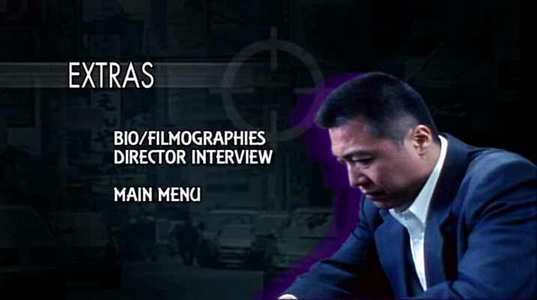
Video
This movie has low budget written all over it. It`s been economically shot and imperfections in camera-moves and lighting are shrewdly turned into merit as they add to the almost documentary-feel of the picture. Contrast is low, and there is a stylistic predominance of blue throughout - particularly in the interior shots in his hotel room. Having said that, this looks like a good transfer, despite the minor black bars to be seen at each end of the Anamorphic 1.85:1 widescreen transfer.
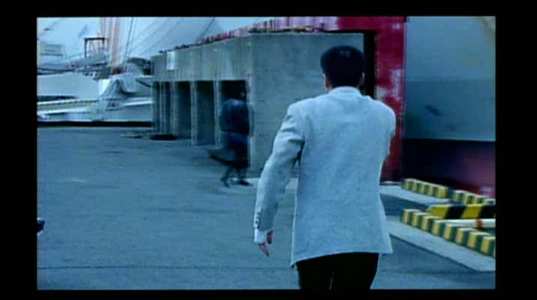
Audio
There are 2 tracks to choose from - both Japanese. There`s a stereo track as well as a nice, subtle 5.1 track. Dialogue is pretty central, and music and atmos often fills the rears almost imperceptibly - you only miss it when it stops! Naturally there are some decent groans and crunches from every which way during the fight scenes.
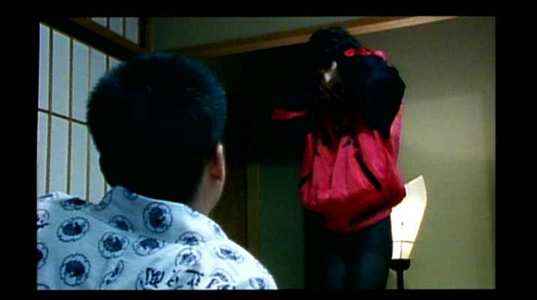
Features
I`m impressed with the effort that Artsmagic put into their releases. You get the feeling that they`re on a mission that can`t be driven solely by profit. (How big can the western market be for such a release?). There`s a folksy interview with Director Rokuro Mochizuki which is filmed as a mid-shot on what could well be a domestic camera. No questions are audible on the cut and he speaks for in excess of 25 minutes in a very relaxed way, revealing much about how he came to make the movie, and why he chose to produce it in the way that he did.
There`s also a very worthwhile audio commentary option by critic Tom Mes, who has become something of an expert on Japanese cinema.
Finally, there are text/photo based biographies of the Director and principal cast.
Oh - and as a final mention, the menu with its animated gunshots works rather well. (Far better than the cheesy animation that lets you know it`s an Artsmagic DVD…ouch!)
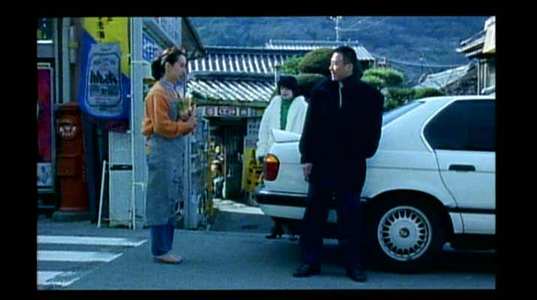
Conclusion
`Another Lonely Hitman` may use the basic ingredients of classic Yakuza movies as its starting point but it`s a far richer movie than just that. There`s plenty of high octane violence, but there`s also a thought provoking sub-plot (addressing change and morality in equal measure) as well a melancholic, existential strand that finds the hitman questioning all the big questions about purpose and existence too.
If it all sounds a bit too deep then I`ve done this film a great disservice. It`s very entertaining and extremely watchable too - a film that frankly works on every level.
The movie may have a low-budget feel, but it`s all stylishly crafted with some great acting, and some very cleverly directed scenes. It`s also clear from the interview with Director Rokuro Mochizuki that most the detail in the film was carefully considered with the end result clearly envisaged from the outset.
An interesting stylistic twist that may interest fans of the genre is that the `hitman` here never uses a gun (apart from the opening scenes). We see him use bricks, rubbish bins and even a video camera to terrify and maim his victims, though a dark memory of having shot an innocent bystander means that he has a reticence to use firearms. Far from slowing the action, this sets Tachibana apart as a real evil MF who doesn`t need guns. A nice touch in a dark movie!
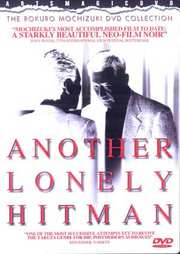
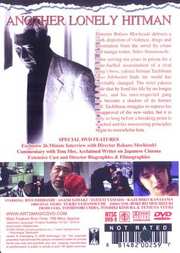




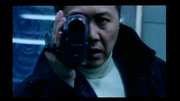
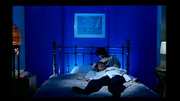
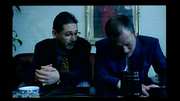
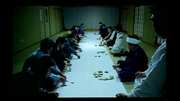
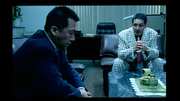
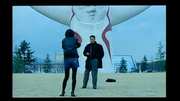
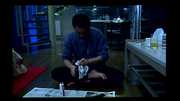
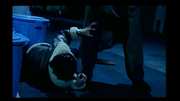
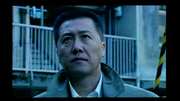
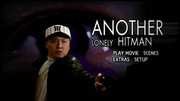









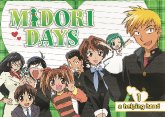






















Your Opinions and Comments
Be the first to post a comment!